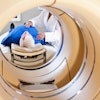
A vital delay of at least two days due to a broken MRI machine might have contributed to the death of a 51-year-old man from sepsis, a U.K. inquest was told last week. The incident has revealed a string of failures prior to the patient's death, including the lack of a checklist for cases of sepsis, according to a local media report.
Simon Smith was admitted to the Russells Hall Hospital in Dudley, near Birmingham, in July 2018 after suffering severe pain in his leg, stated an article posted on 4 December 2020 by the Express and Star regional newspaper. He had begun to show signs of sepsis, including a high temperature and raised heart rate, but the staff didn't give him antibiotics to treat the condition until days later and he went into multiorgan failure.
Smith was eventually diagnosed with a rare infection in the thigh bone, which triggered sepsis. He spent 11 weeks in intensive care and was discharged, but he later returned to the hospital because he had not made a full recovery. He died from sepsis on 1 November 2018, the Express and Star reported.
Evidence from trauma surgeon
Qutub Qadri, consultant orthopedic trauma surgeon at Dudley Group NHS Foundation Trust, told the inquest he had made a treatment plan based on the information junior colleagues provided. Qadri said he had not been told that Smith's blood tests had shown an increase in c-reactive protein markers (CRP), indicating inflammation in the body.
At the hearing, the coroner Zafar Siddique suggested that the raised CRP levels and a spike in the patient's temperature "were red flags being triggered," the article continued.
According to Qadri, "The picture given to me was that he was doing well." He told the inquest that he requested an MRI scan on 1 August because an initial x-ray had not picked up the cause of Smith's discomfort, but the scan was delayed by two days.
"I asked for it. I spoke to the consultant radiologist," Qadri said. "I was in surgery all day. I saw Mr. Smith afterwards and he was getting up. I asked him if he had had the scan and he said 'no.' I thought we could hold on until the next day. In retrospect, this was not the right decision."
"The next day after my (surgical) list, I spoke to the radiologist, and this was the first time I was made aware the MRI scanner was broken and there was only a mobile scanner available," Qadri added.
According to the Express and Star report, Siddique also asked him if "lack of sepsis awareness led to a missed opportunity" to spot the infection which led to multiorgan failure.
"I do agree. Now we have a ward checklist. Unfortunately that system was not in place (then). I accept my responsibility as the consultant," replied Qadri, adding that the trust had carried out a root cause analysis that revealed a string of failures prior to his death.
The inquest is still continuing, the article noted.
New Zealand case
In another case reported recently in New Zealand, the care of a sepsis patient was delayed after hospital staff had failed to coordinate effectively.
A patient presented with sepsis to a hospital in Lakes District Health Board, which is based in Taupo and Rotorua, around 200 km south of Auckland. The patient had his treatment delayed after there was confusion over which team was responsible for him, according to a report posted on 16 November by New Zealand Doctor.
"We as caregivers stood helpless," said one individual who was involved in the case.



















